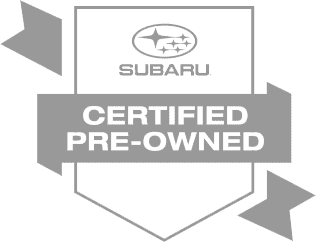
Embarking on the journey to acquire your ideal vehicle can feel daunting when considering the financial aspects. But don't worry. Whether this is your first time financing a car or you've done it before, we'll help you understand the different ways you can pay and develop a plan that works with your budget. With this foundation of knowledge, you'll be well-equipped to make an informed decision you can feel secure about. Read on for answers to four common questions you may have wondered about yourself.
What's the Process for Getting Approved for a Car Loan?

MacBook Pro, white ceramic mug, and black smartphone on table by Andrew Neel is licensed with Unsplash License
Once you've chosen an affordable vehicle that fits your needs, the loan application process is straightforward and involves several key steps. Here are some things to consider as you prepare to seek approval for a loan:
- Consider getting preapproved for financing before you start looking for a vehicle. This can give you more power to negotiate a deal.
- Gather the documents you'll need — your driver's license and proof of residency, employment, and income.
- Compare annual percentage rates, repayment periods, and conditions from multiple financial institutions and work with the one that can help you secure the most advantageous arrangement for your circumstances.
- Give accurate and complete information on the application, particularly about your personal and financial situation.
- Allow the creditor to review your credit report and score to assess your trustworthiness. Financial institutions will likewise examine factors such as your credit history, income stability, and existing debts to determine if you meet the qualifications for a loan.
- Read through the final loan agreement carefully before signing. Make sure you understand all the terms and rules.
What Factors Affect My Car Loan Interest Rate?
Financing to buy your dream vehicle involves more than finding the perfect ride. The interest rate on your loan dramatically impacts the total cost. The following are key factors you'll need to understand if you want to get the best rate:
- Your credit score, which indicates your proficiency in managing money, is crucial in determining risk; higher scores generally translate to lower perceived risk for lenders.
- Shorter loan terms often lead to lower interest rates. While the monthly payments are higher, the total cost is typically less.
- A substantial down payment shows your commitment. It reduces the lender's risk, potentially leading to better rates.
- Newer cars with lower mileage tend to qualify for more favorable rates, and they're viewed as less risky investments.
- Brand-new vehicles generally come with lower rates than used models. Lenders see them as safer bets.
- Your debt-to-income ratio shows your ability to handle payments. A lower ratio can help you get a competitive rate.
- The loan amount and the car's value impact the rate. Lenders aim to avoid lending too much.
- Steady employment and consistent income boost your credibility. This can lead to more favorable rates from lenders.
Can I Get a Car Loan With Bad Credit?
Do you worry that bad credit could stop you from getting a car loan? Don't lose hope. You can get a loan even if your credit could be better. However, you may face higher interest rates and stricter loan terms. Lenders who work with subprime car loans help borrowers who have had credit challenges.
A co-signer with excellent credit can be a lifeline when securing a car loan. Having someone vouch for you can give lenders the trust to approve it and offer a better rate. Another option is to save for a larger down payment. The more you put down at first, the less you borrow, making you a better candidate for financing. It's good to check out credit unions, too. They often have more flexible lending rules and may work with you to find a solution that fits your budget.
Before hitting the dealership, take a deep dive into your credit report and rectify any errors hindering your creditworthiness. It won't happen overnight, but paying down existing debts helps improve your credit utilization ratio (a critical factor in determining creditworthiness). Don't get discouraged. With effort and good financial decision-making, you can get behind the wheel of your new ride sooner than you think. Boosting your credit score is a worthy investment that can open up more favorable financing options and potentially save you thousands in interest over the term of the loan.
What's the Difference Between Leasing and Financing a Car?
When you pay for a new car, you typically have one of two choices: lease or finance with a loan. In basic terms, leasing is kind of like a long-term rental. Most leases are for three years. While leasing offers lower monthly costs, it comes with restrictions, such as mileage limits and modification constraints. In contrast, financing allows you to pay the vehicle's total cost over time, along with interest charges, granting you complete ownership once the loan is satisfied.
Leasing a car is similar to renting a home — you enjoy temporary use of the asset without the long-term commitment of ownership. Financing a vehicle is comparable to purchasing a house with a mortgage, as you incrementally gain equity while making regular payments. You decide if you want the flexibility of leasing or the ownership of financing.
Some leases allow you to buy them out at the end of the term. This can be beneficial if interest rates are higher on a loan but lower on a lease. You can finance the remaining balance of the lease and net better terms than you would've if you financed it outright.
Contact Our Sales Team for More Information
Our friendly finance team at Ciocca Subaru of York is here to assist you every step of the way in your car-buying journey. We offer personalized assistance to help you finance the car of your dreams. Contact us and let our experienced team help you navigate the financing process. If you already know how you want to finance your vehicle, we also have an online application you can fill out before heading to the dealership.



